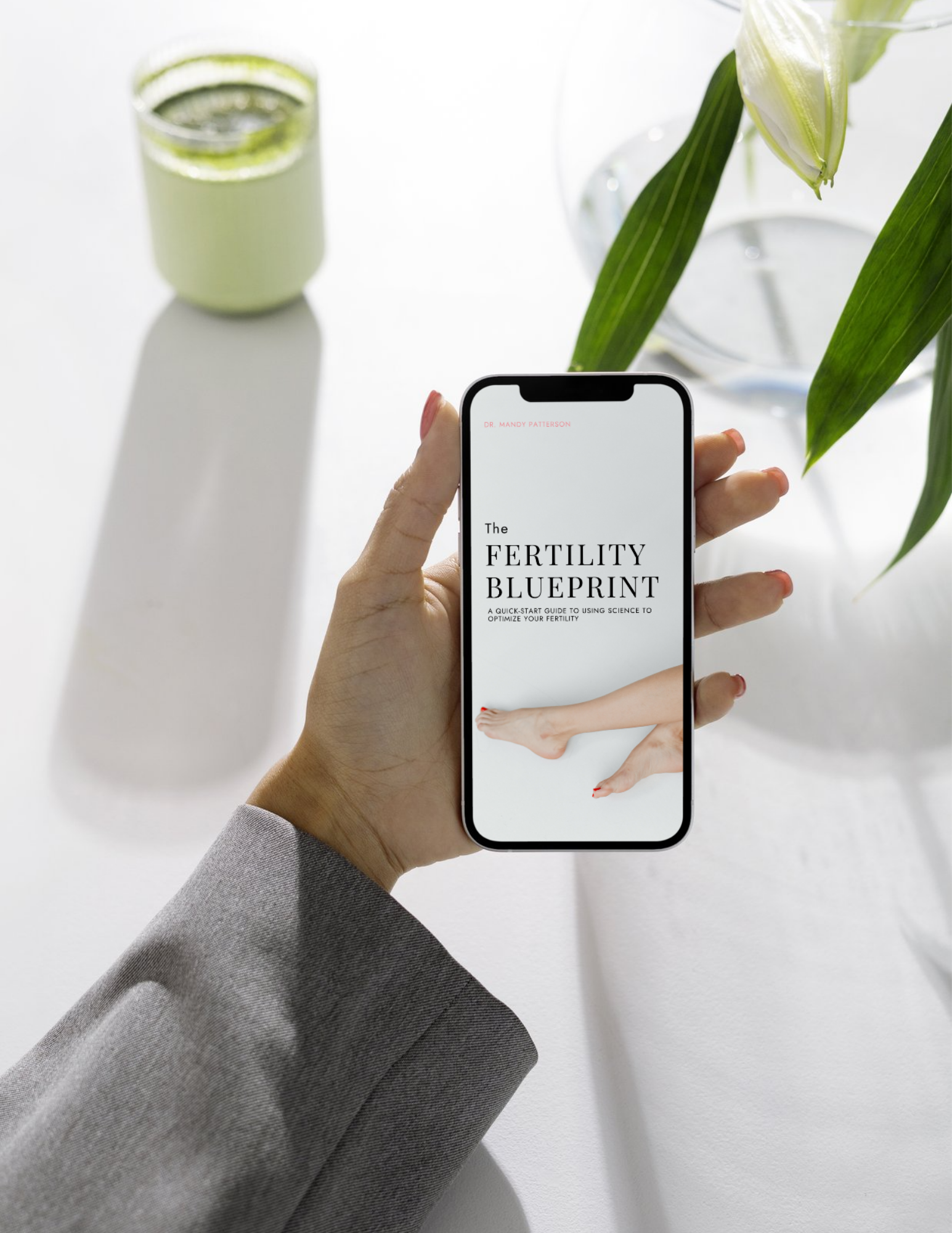Every woman knows the struggle of “that time of the month.” It’s a time often characterized by stuffing tampons and pads in purses and regular use of the ladies room. You and your girlfriends often laugh, or lament, about your symptoms and the state of being a woman. While we often feel annoyed when our period comes knocking, there are some women who would do anything to get theirs. Oh, the irony of womanhood! If you have difficulties with painful, heavy periods or lack of regular periods, struggle with being overweight, have acne, loss of hair, or hair in unwanted places, and/or have faced infertility, read on as PCOS or polycystic ovarian syndrome could be your culprit.
This is especially true for women who are trying to get pregnant. Irregular or missing periods are extremely frustrating and oftentimes a symptom of PCOS. Actually, according to the CDC, PCOS is one of the most common causes of female infertility, affecting 6% to 12% (as many as 5 million) of US women of reproductive age. As one of the most common hormonal conditions that women suffer, this article will tell you everything you need to know about PCOS.
PCOS: What Is It and What Causes It?
PCOS stands for polycystic ovary syndrome, however, unlike the name suggests it does not just affect your ovaries. To understand PCOS you first must understand the difference between a syndrome and a disease. It’s not like a disease with a specific etiology or single cause. Rather, a syndrome is a group of symptoms consistently happening together. It’s more like a description, for example, signs and symptoms are common but we don’t know exactly what the driving factor is.
This may not be what you want to hear, but PCOS very likely has multiple factors that play into its expression. For example, genetic and environmental factors have both been found to influence the appearance of PCOS in patients. To put it simply, because PCOS is a multifactorial syndrome each woman who has PCOS will likely have a unique set of causes and factors based on her life blueprint.
The common characteristics of PCOS are irregular or missing periods, androgenic symptoms (or an increased level of androgens), and ovaries looking polycystic (multiple cysts) on an ultrasound scan. PCOS is also associated with insulin resistance and diabetes, endometrial hyperplasia and endometrial cancer, and cardiovascular disease.
What are the Symptoms of PCOS?
Multiple body systems and many hormonal pathways are upset when a woman has PCOS. With this being the case, it can be difficult to pinpoint the symptoms and diagnose the real problem. You may have gone to multiple doctors before they realize that you have PCOS, or you may be suffering from a myriad of seemingly unrelated symptoms. If you’re struggling with any of the below mentioned symptoms and seeking help, please reach out to a functional medicine doctor or a holistic health practitioner that specializes in functional medicine!
In order to diagnose PCOS two of the following three criteria are needed:
- Irregular periods (or no periods)
- Elevated levels of androgens (acne or hirsutism)
- Polycystic looking ovaries on ultrasound scan
However, while these are needed to diagnose PCOS, they are not the only symptoms you may be dealing with. Here is a list of other symptoms that generally accompany PCOS:
- Elevated insulin levels due to insulin resistance
- Obesity
- Type 2 diabetes
- Acne
- Skin changes (discoloration, skin tags, etc)
- Pelvic pain
- Inflammation
- Infertility
- Other hormonal imbalances
What Are Elevated Levels of Androgens?
Hyperandrogenism is a medical condition where the female body has elevated levels of androgens. Androgen hormones are usually referred to as the male hormones, but are actually present and necessary in both males and females. In females androgens are produced in the ovaries, adrenal glands, and fat cells. However, women with PCOS have higher levels of androgens than women without PCOS.
Androgen hormones include:
- Androstenediol (A5)
- Androstenedione (A4)
- Androsterone
- Dehydroepiandrosterone (DHEA)
- DHEA sulfate (DHEA-S)
- Dihydrotestosterone (DHT)
- Testosterone
An excess of androgen hormones in women causes things like hirsutism and acne. Hirsutism is excessive hair that is not usually found, for example on your face, upper lip, abdomen and back. Another symptom is actually hair loss in a “male balding pattern.” Ultimately, it’s not something us ladies want to deal with.
Tests To Diagnose PCOS

If hormonal imbalances are weighing you down and interfering with your life satisfaction and goals, you could benefit from a comprehensive health history and some lab work to determine imbalances in the body.
While PCOS may be the most common endocrine condition, it is often difficult for women to get a diagnosis of PCOS due to its nature as a multifactorial syndrome. You may have to go to several doctors and certainly will have to undergo several different tests to get to the root of the problem. I know, I know, it’s a pain, but your health is worth it!
A functional medicine doctor or holistic health practitioner such as a naturopath is able to pinpoint several tests that will better serve women who think they may have PCOS. It’s always best to find PCOS early rather than later so you can have an easier time planning your family and prevent possible conditions, like endometrial cancer, down the road.
Here are several tests that will help pinpoint the unique drivers that are causing your PCOS.
- A Comprehensive Functional Blood Panel
This test will look for evidence of insulin resistance, one of the early markers of a sugar imbalance, and a common symptom accompanying PCOS. A rise of insulin resistance is a common driver of hormonal imbalance.
- The Dutch Complete Hormone Test
The dutch test gives a lot of information on your sex hormones and adrenal stress hormones. Women who have PCOS oftentimes have an estrogen-dominant hormonal system. This means your estrogen levels are much higher than your progesterone levels. Excess estrogen can occur from liver detoxification issues, estrogen exposure from the environment, and bad gut microbes growing in the intestines.
- Advanced Testing for the Gut
The PCR Stool test gives a good picture of what’s going on with your GI microbes. SIBO Breath testing may also help identify what bacteria are living in your intestines. Many women with PCOS have gut and digestive tract issues. This type of testing will give you targeted therapy rather than leaving you guessing with what’s happening.
Solutions and Treatment for PCOS
PCOS is neither uncontrollable or uncurable, solutions and treatment for PCOS do exist. The conventional model will usually include a prescription of birth control pills and lifestyle changes such as weight loss and exercise.
On the other hand, the functional approach takes into account the underlying causes and multiple body systems involved. Holistic health practitioners perform a thorough lifestyle assessment, blood tests, and dietary analysis. Then they will provide lifestyle changes and supplement support.
Examples of lifestyle improvements a functional medicine doctor will recommend include: A whole foods diet, exercise, stress management, and proper rest. Each woman will have a different approach based on her current lifestyle.

The incorporation of positive lifestyle modifications such as massage and acupuncture can be apart of a wellness plan to rebalance hormones, lower stress, and reset fertility in PCOS.
Additionally, herbal supplements that may be used for PCOS aim to balance blood sugar level as well as hormones. These can include nettle root, green tea, flax seeds, saw palmetto, licorice root, chaste tree extract, trace minerals, vitamin D3, and chromium.
Work with a Holistic Health Practitioner
There are many treatment options available for women diagnosed with PCOS. If you’re looking for the right options for your health goals let’s talk and see if I can be of help. As a Naturopathic Doctor I have experience helping women balance their hormones and take back their health. Send me a message on my contact page and I’ll be in touch!


















